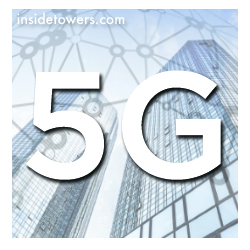The Third Generation Partnership Project (3GPP), the wireless industry’s global standard-setting body, has approved the new technical specification that will allow mobile communications company Ligado Networks to deploy 5G networks in its L-band spectrum.
The approval marks the next step in Ligado’s efforts to deploy a mobile private network solution designed to bring next-generation networks to the energy, manufacturing, health care, transportation, and other critical infrastructure sectors.
In April 2020, the FCC authorized Ligado to deploy a low-power terrestrial nationwide network on 35 megahertz of spectrum bands that will primarily support Internet of Things (IoT) services in the 1526-1536 MHz, 1627.5-1637.5 MHz, and 1646.5-1656.5 MHz bands, known as Band 24.
“The 3GPP approval gives us what we need to accelerate our commercial ecosystem activities and expand Ligado’s roster of partners to deploy this much-needed spectrum for U.S. businesses and consumers,” said Ligado CEO Doug Smith.
3GPP approvals of Band 24 will enable vendors to build 5G and LTE products compatible with Ligado’s mid-band spectrum, although Ligado has already entered into commercial agreements with multiple 5G base station and chipset vendors.
In February, Rakuten announced a collaboration with Ligado to deploy the Rakuten Communications Platform in a trial of 5G private networks over the next 12 months.
The items that were approved at this week’s 3GPP plenary meeting include updates to Ligado’s existing LTE Band 24; a new 5G NR Band labeled n24; a new 5G NR Supplemental Uplink (SUL) Band labeled n99; and NR Carrier Aggregation (CA) and SUL band combinations for n24 and n99.
The approvals of the SUL band n99 and the other band combinations will help facilitate the deployments of L-band spectrum with other mid-band airwaves like the C-band, Citizens Broadband Radio Service, and the Educational Broadband Service/Broadband Radio Service spectrum bands, according to Ligado.
Rakuten Chief Technology Officer Maqbool Aliani, said, “Bringing this additional mid-band spectrum to the 5G market will help the United States roll out next-generation deployments more quickly, at lower costs and with superior network performance.”
The reallocation of the L band has not been without controversy. Many feared global positioning system satellites, which share the L-band spectrum with Ligado, would experience interference.
“GPS disruptions caused by Ligado interference could have global ramifications to U.S. national security, commercial and civil sectors, the economy, and those who rely on this service in their everyday lives,” the Department of Defense wrote. “There are too many unknowns, and the risks are too great, to allow the proposed Ligado system to proceed. We risk lives and the security of the nation if GPS is interrupted for any amount of time.”
Ironically, military jamming has been blamed in 90 reports of GPS interference in the Aviation Safety Reporting System over the past eight years, with most of the incidents occurring in 2019 and 2020, according to The IEEE SPECTRUM.
“The military is jamming GPS signals to develop its own defenses against GPS jamming. Ironically, though, the Pentagon’s efforts to safeguard its own troops and systems are putting the lives of civilian pilots, passengers, and crew at risk,” IEEE SPECTRUM wrote.
Nevertheless, the FCC unanimously approved Ligado’s spectrum license and it submitted its work items to 3GPP in June 2020. In October 2020, the company announced it had successfully raised nearly $4 billion to develop and deploy the L-band in 5G networks.
By J. Sharpe Smith, Inside Towers Technology Editor





Reader Interactions